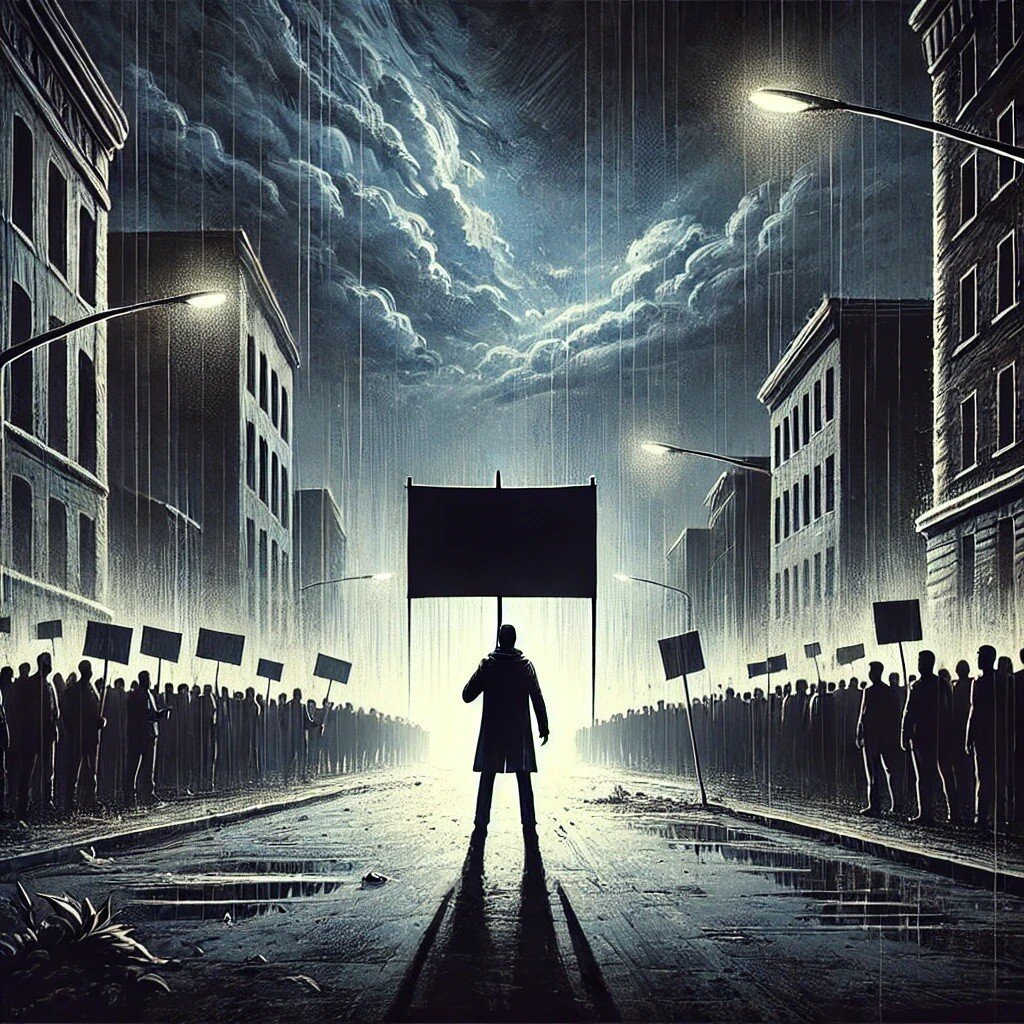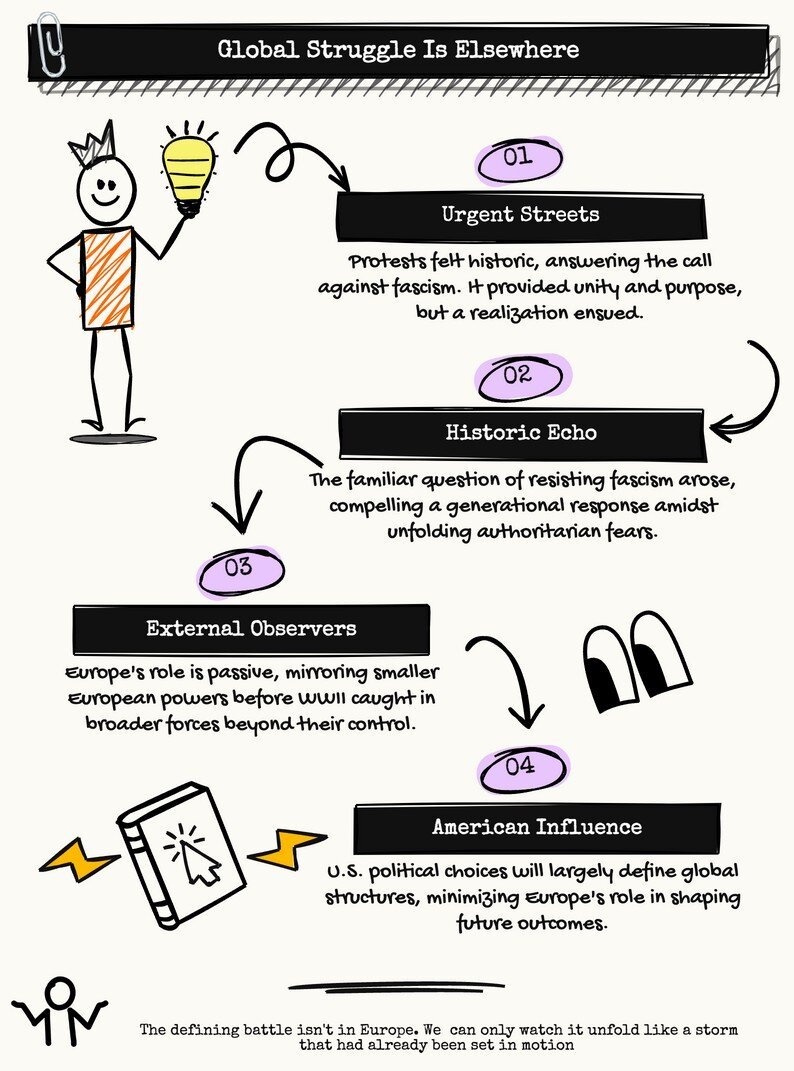The Great Conflict is Elsewhere – And We Were Never Asked

Recently, I took to the streets again, filled with an urgency I had rarely felt before. The chants, the banners, the sheer energy—it felt like history was calling. This was it—fascism was no longer an abstract fear from history; it was real, tangible, and unfolding before us. The weight of history pressed upon my shoulders, and yet, for the first time, I felt light, as if I had finally found my place in it. This was the moment my generation had been waiting for. The historical question that had echoed for decades
What would you have done when fascism came?—was finally being asked of us.
And I was ready to answer. Marching, chanting, standing shoulder to shoulder with others who believed that history was once again at a crossroads, I felt certain that our actions would make a difference. A sense of purpose filled me, and for the first time, I felt almost joyful—ready to take up the fight. At least for that moment, it quieted the existential question that had always loomed over me: What would I do?
The Battle is Not Here
But at this weekend’s end, a gnawing realization set in. While discussions about democratic erosion and authoritarian tendencies are certainly relevant in Germany and Europe—most notably with the rise of the AfD and similar movements—the grand, defining struggle of our era does not seem to be happening here. Instead, the real epochal conflict is unfolding in the United States and we are mere observers.
Much like Poland or Belgium in 1939—nations caught in the path of larger forces beyond their control—Germany and Europe today find themselves in a precarious position: not as the deciding players in history, but as observers, waiting to see which way the storm will blow. The political trajectory of the U.S., whether it remains a democracy or veers into authoritarianism, will shape the future global order;
any decision made in Berlin, Brussels, or Paris are mere footnotes in some maybe to be written Bachelor theses.
Little Influence, Big Consequences
The realization was crushing: no matter how loudly we protested, even assuming we do win the fight here, the real battle was happening elsewhere, far beyond our reach. It is a hard pill to swallow, but Europe has limited influence over what happens in the U.S. American politics are deeply internal, and external pressure rarely shifts the course of events.
The Realization: We Were Never Asked
Many people believed that if democracy were in danger, they would be called upon to take a stand, to fight, to resist. But the truth is more unsettling: this generation might never even get the chance to answer the question, What would you have done? Because the defining decisions are happening out of their reach
Instead, the historical question facing this generation might be something far more humbling: What will you do when the decision has already been made?
Or, to put it differently: Welcome to the feeling our grandfathers’ neighbours must have known all too well—helplessly, standing at the edge of history, watching it unfold like a storm that has already been set in motion.
Only this time, we know the ending. And yet, we can do nothing to rewrite it.

Seems oddly fitting in the end—my grandfather’s father’s karma has finally caught up with me.